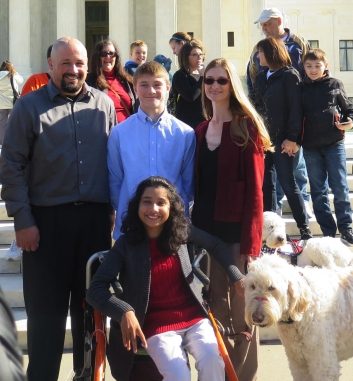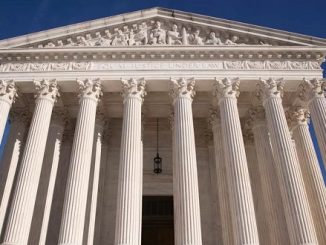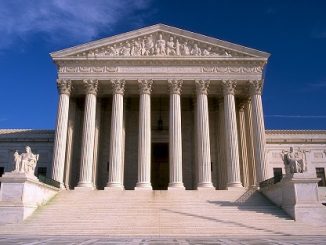
The Supreme Court of the United States is set to hear a case that stems from decisions concerning a disabled girl, her service dog, and whether that animal should have been allowed to accompany her to school. The case is Fry v. Napoleon and the outcome could determine the relationship between the Americans with Disabilities Act (ADA) and the Individuals with Disabilities Education Act (IDEA).
Ehlena Fry was told by her Napoleon, Mich., elementary school in 2009 that her service dog, could not join her at school because aides were available to assist her. Her parents say the bond between people and their service animals must be reinforced by constant accompaniment.
But this case is not a simple question of whether the school should have allowed the dog to join Ehlena at school. Rather, it addresses the overlap between ADA and the IDEA, and whether the Frys pursued the correct course of action in seeking redress. The outcome could set important precedent for similar cases in the future.
Ehlena was 5 when her parents obtained the dog, and after her school’s refusal to allow the dog on site, meetings produced a compromise – the dog could join Ehlena for a trial period. But the trial period came to an end and the school said the dog would no longer be allowed.
Her parents withdrew Ehlena from that school, home-schooled for two years, and enrolled her in a neighboring county school. That school accepted the dog.
In December 2012, Ehlena’s parents brought a lawsuit against the school in Napoleon, stating that its refusal to allow her service dog to accompany Ehlena – violated both the ADA and the Rehabilitation Act, both of which prohibit discrimination against people with disabilities.
The federal district court and eventually the US Court of Appeals dismissed the case, basing their ruling on the Handicapped Children’s Protection Act. Under that act, they stated, a family was required to attempt all possible administrative remedies provided in the IDEA before filing a lawsuit. It is this ruling that the Supreme Court will now consider.
In the eyes of the school district, a ruling in their favor would reinforce the idea that parents and school administrators have the necessary expertise to resolve disputes over educational needs, not the courts.
A decision is expected next year.





Be the first to comment